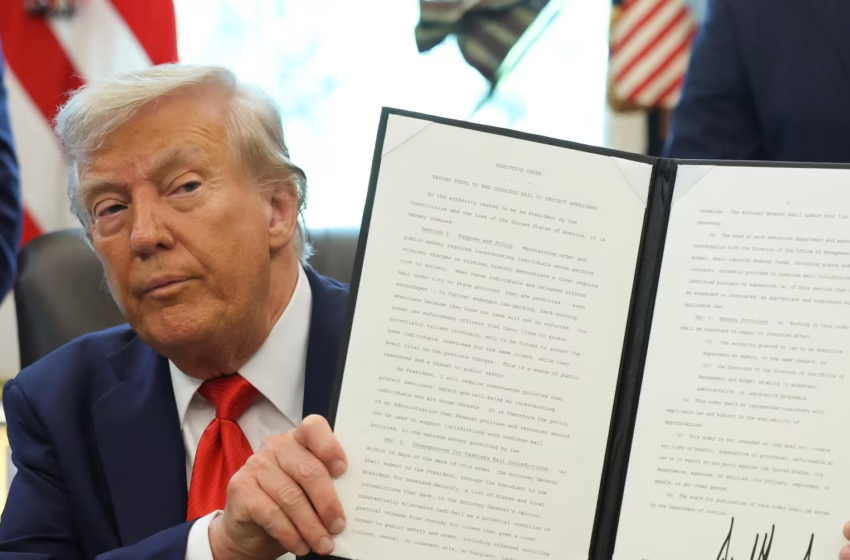What is Cashless Bail? Understanding Trump’s Executive Order

President Donald Trump holds up an executive order after signing it. Credit: REUTERS/Jonathan Ernst
Cashless bail eliminates the need for defendants to pay money in order to secure pretrial release. Instead, judges assess whether individuals pose a flight risk or a danger to the public before granting release. Supporters argue this prevents people from being jailed simply because they cannot afford bail, addressing a system that has long disadvantaged low-income and marginalized defendants.
In states like Illinois, New York, and the District of Columbia, bail reform laws have allowed low-level offenders to await trial without financial burden. Critics, however, claim the approach has led to repeat offenses and undermined community safety.
Trump’s Executive Order and Federal Pressure
On August 25, 2025, President Donald Trump signed an executive order targeting cashless bail, starting with Washington, D.C. The order directs the Attorney General to identify jurisdictions that maintain cashless bail policies and threatens to cut off federal grants and funding for those areas.
Trump framed his move as a public safety measure, pointing to cases where violent offenders released without bail allegedly committed new crimes. His administration has described cashless bail as a “government-backed crime spree,” arguing that it weakens accountability.
The order also empowers federal authorities to bypass local courts in D.C., asserting greater control over pretrial detention in the nation’s capital.
READ ALSO
Trump’s DC police takeover: What it means for law, politics, and civil liberties in America
What is the Presidential Fitness Test? Inside Trump’s new executive order
The Bigger Debate: Safety, Equity, and Federal Power
Research on the impact of cashless bail paints a more complicated picture. Studies from reform states show no consistent rise in violent crime following bail reform; some areas have even reported decreases. Critics of Trump’s order say anecdotal cases are being used to attack reforms aimed at fairness in the justice system.
The broader implications go beyond crime statistics. By using federal funding as leverage, Trump’s order raises constitutional concerns about states’ rights and local autonomy. Reform advocates stress that bail should not punish poverty, while opponents insist public safety must take priority.
As this debate unfolds, cashless bail remains at the center of a larger clash, between equity and security, progressive reform and tough-on-crime politics, and local justice policy versus federal authority.

